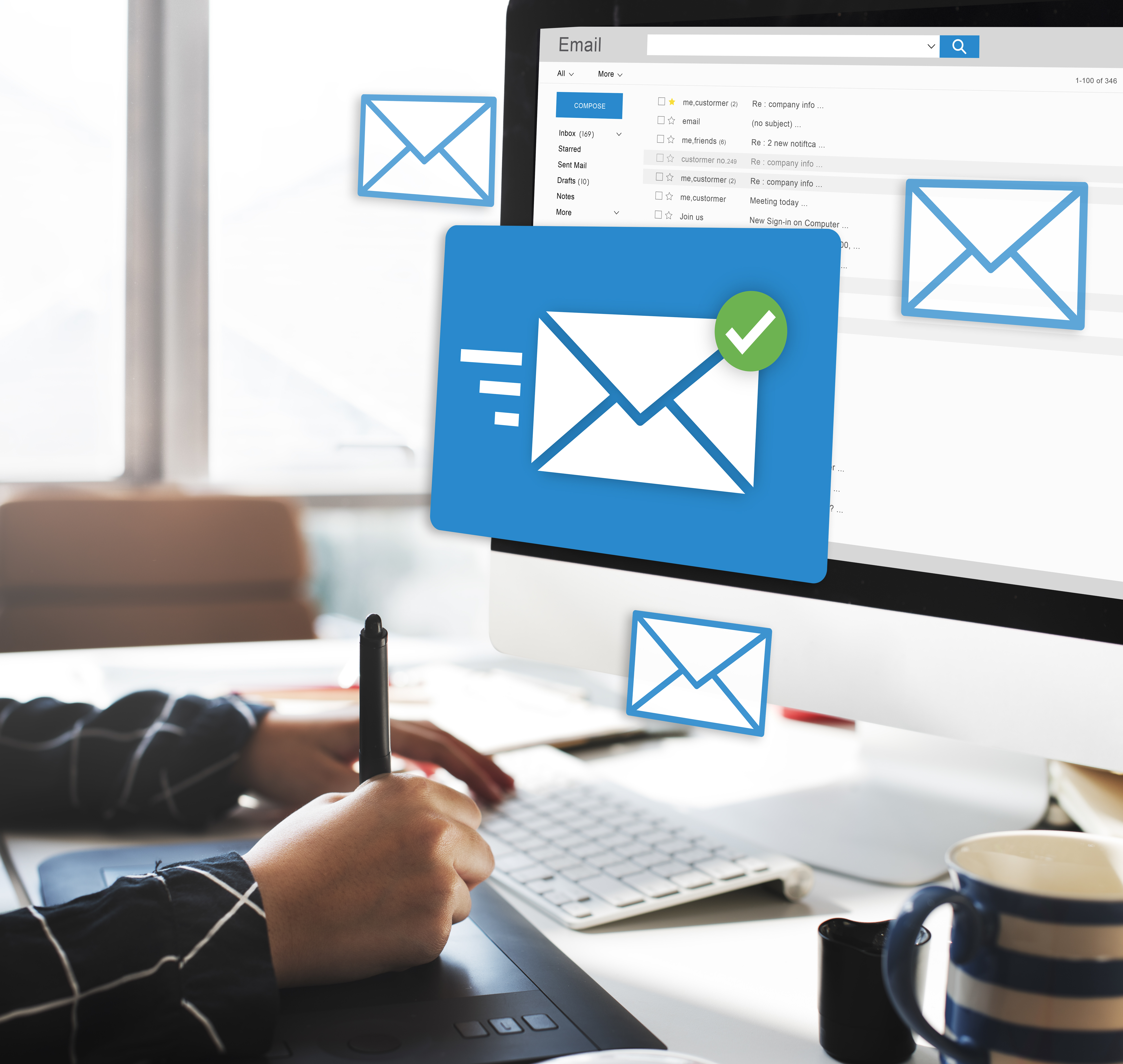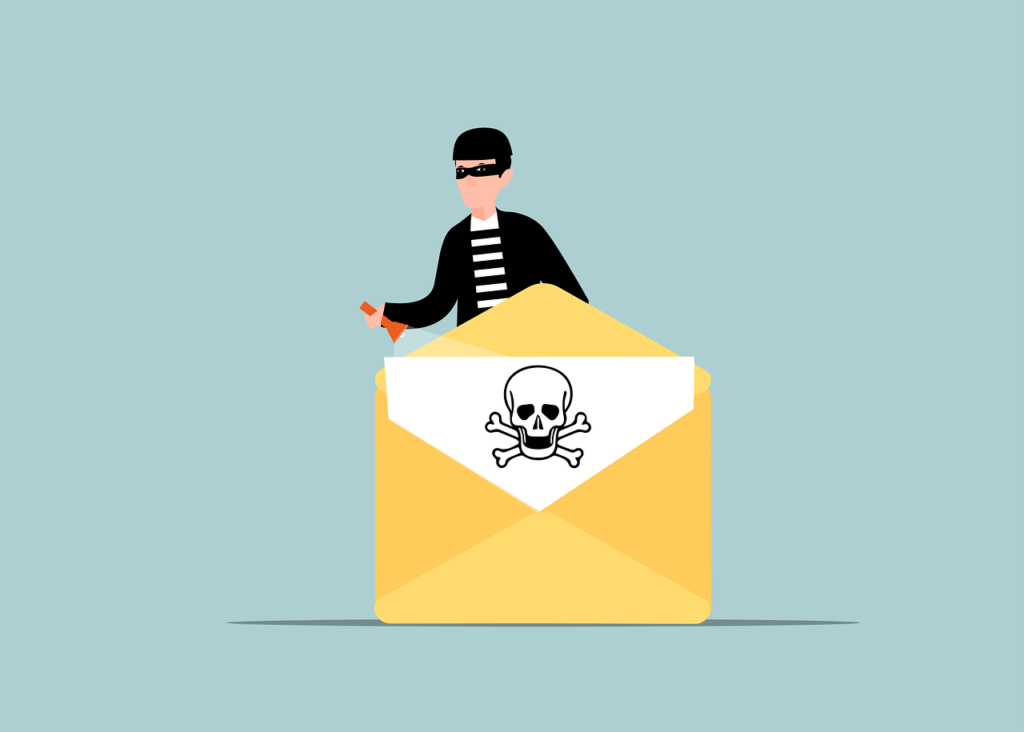You’ve probably noticed more talk about email authentication lately, right? Well, there’s a good reason for that. It’s because of the increasing threat of phishing. Phishing has been causing data breaches and security incidents for years now, so it’s a big deal.
There’s a major change happening in the email world to tackle phishing. Email authentication is becoming a must for email service providers. It’s super important for your online presence and communication to keep up with this change.
You might be familiar with Google and Yahoo, two of the biggest email providers out there. They’ve recently rolled out a new DMARC policy since February 2024. This policy basically makes email authentication a must-have, especially for businesses using Gmail and Yahoo Mail.
But what’s DMARC, and why all the fuss? Don’t worry, we’ve got your back. Let’s dive into the world of email authentication and why it’s more crucial than ever for your business.

The Email Spoofing Problem
Imagine getting an email that looks like it’s from your bank, asking for urgent action. You click the link, enter your info, and bam – your details are compromised. This sneaky trick is called email spoofing, where scammers pretend to be someone else.
They try to look like legit individuals or organizations, like your bank. These tactics can seriously mess up companies, leading to financial losses, damage to reputation, data breaches, and even loss of future business.
Unfortunately, email spoofing is getting worse, making email authentication a vital defense.
What is Email Authentication?
Email authentication is all about making sure your emails are the real deal. It checks if the server sending the email is legit and reports any unauthorized use of a company domain.
There are three key protocols for email authentication:
- SPF (Sender Policy Framework): Records authorized IP addresses to send emails for a domain.
- DKIM (DomainKeys Identified Mail): Lets domain owners digitally “sign” emails to verify they’re legit.
- DMARC (Domain-based Message Authentication, Reporting, and Conformance): Tells receiving email servers what to do with SPF and DKIM checks and alerts domain owners if their domain is being spoofed.
SPF and DKIM protect, while DMARC gives vital info for security. It helps stop scammers from using your domain name in their tricks.
Here’s the deal:
You set up a DMARC record in your domain server settings. This tells email receivers (like Google and Yahoo) which IP addresses can send emails on your behalf. Also, when you send an email, the receiver’s mail server checks if it’s from an authorized sender.
Based on your DMARC policy, the receiver can act, like delivering, rejecting, or quarantining the email. You get reports from DMARC authentication, showing if your business email is being delivered or if scammers are spoofing your domain.
Why Google & Yahoo’s New DMARC Policy Matters
Google and Yahoo used to filter spam but didn’t strictly enforce DMARC policies. Their new policy from February 2024 steps up email security.
Starting then, businesses sending over 5,000 emails daily must use DMARC. There are also policies for those sending fewer emails, relating to SPF and DKIM authentication.
Expect more email authentication requirements to come. Keep an eye out to ensure your business emails keep flowing smoothly.
The Benefits of Implementing DMARC
So, Implementing DMARC isn’t just about following rules. It has loads of benefits:
- Protects your brand reputation: Stops email spoofing scams from damaging your brand image and customer trust.
- Improves email delivery: Proper authentication ensures your legit emails land in inboxes, not spam folders.
- Gives insights: DMARC reports show how receivers handle your emails, helping spot issues and boosting your email security.
Taking Action: How to Put DMARC in Place
With email spoofing on the rise, getting DMARC set up is crucial. Here’s what to do:
- Understand DMARC options.
- Chat with your IT team or security provider.
- Regularly track and tweak your DMARC setup.
Need Help with Email Authentication & DMARC Monitoring?
DMARC is just one part of ensuring the security of your emails. If you need assistance sorting out these protocols, we’re here to help! At 911 Pc Help, we specialize in providing email authentication and DMARC monitoring services.
Our team of experts can collaborate with you to implement DMARC effectively, guaranteeing protection for your business emails against spoofing and phishing attacks.
Don’t let email security concerns hold your business back. Contact us today to schedule a chat and learn more about how we can help safeguard your email communication and protect your brand reputation.

